The best external SSDs and hard drives in 2025
Here are the best external SSDs and hard drives, based on our extensive testing
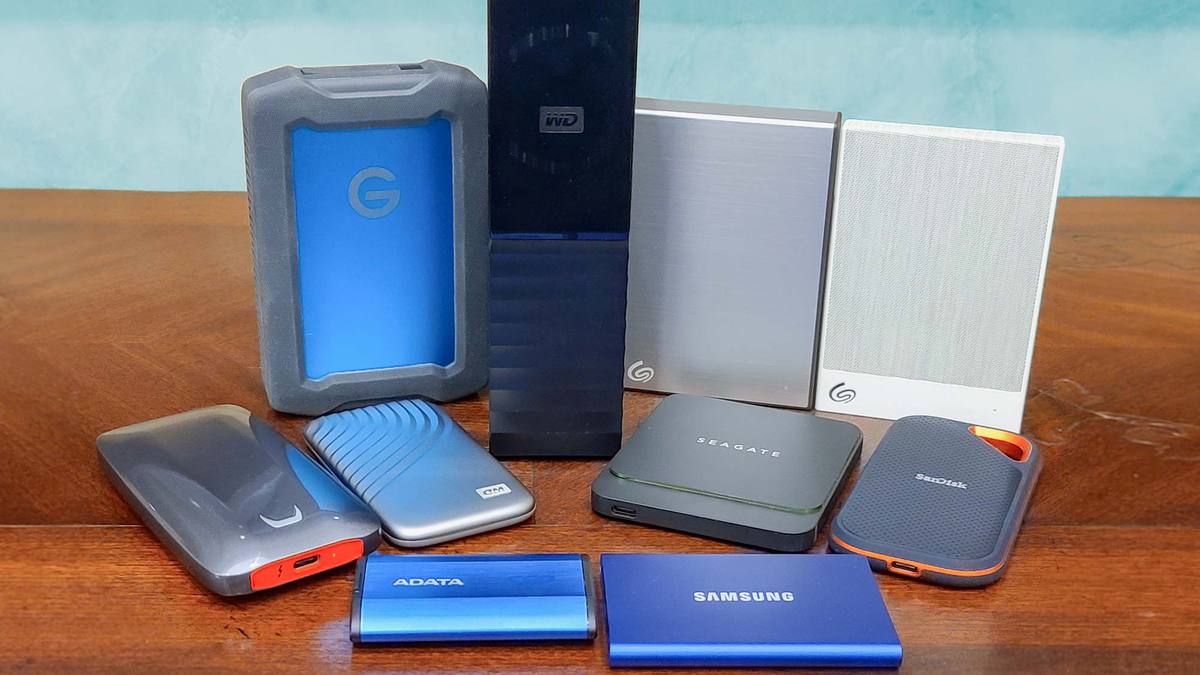
The top external SSDs and hard drives are essential tools for PC and Mac users. With file sizes constantly growing—whether it’s photos, movies, apps, or games—having ample storage is more important than ever.
If you own one of the best laptops on the market, you’re likely limited by its built-in storage capacity. That’s where an external drive can be a game-changer, offering a convenient solution to store large files without relying on cloud storage. Plus, it’s often a more affordable option compared to the premium prices manufacturers charge for internal storage upgrades.
External drives aren’t just for expanding storage, though. They’re invaluable for regular computer backups and serving as a central hub for all your files across devices. However, when choosing between traditional hard disk drives (HDDs) and solid-state drives (SSDs), it’s worth noting that while HDDs are cheaper, they can lack reliability. We strongly recommend opting for an SSD for speed and durability.
Looking ahead, it looks like 2025 could be an exciting year for external SSDs, as PCIe Gen 5 technology becomes the norm with read speeds of up to 14,000 MB/s being a possibility thanks to Thunderbolt 5 connectivity. We will be keeping on top of everything that happens and testing the brand new drives as they become available.
With that in mind, here’s a look at the best external hard drives and SSDs available today.
The best external hard drives you can buy today
Why you can trust Tom's Guide
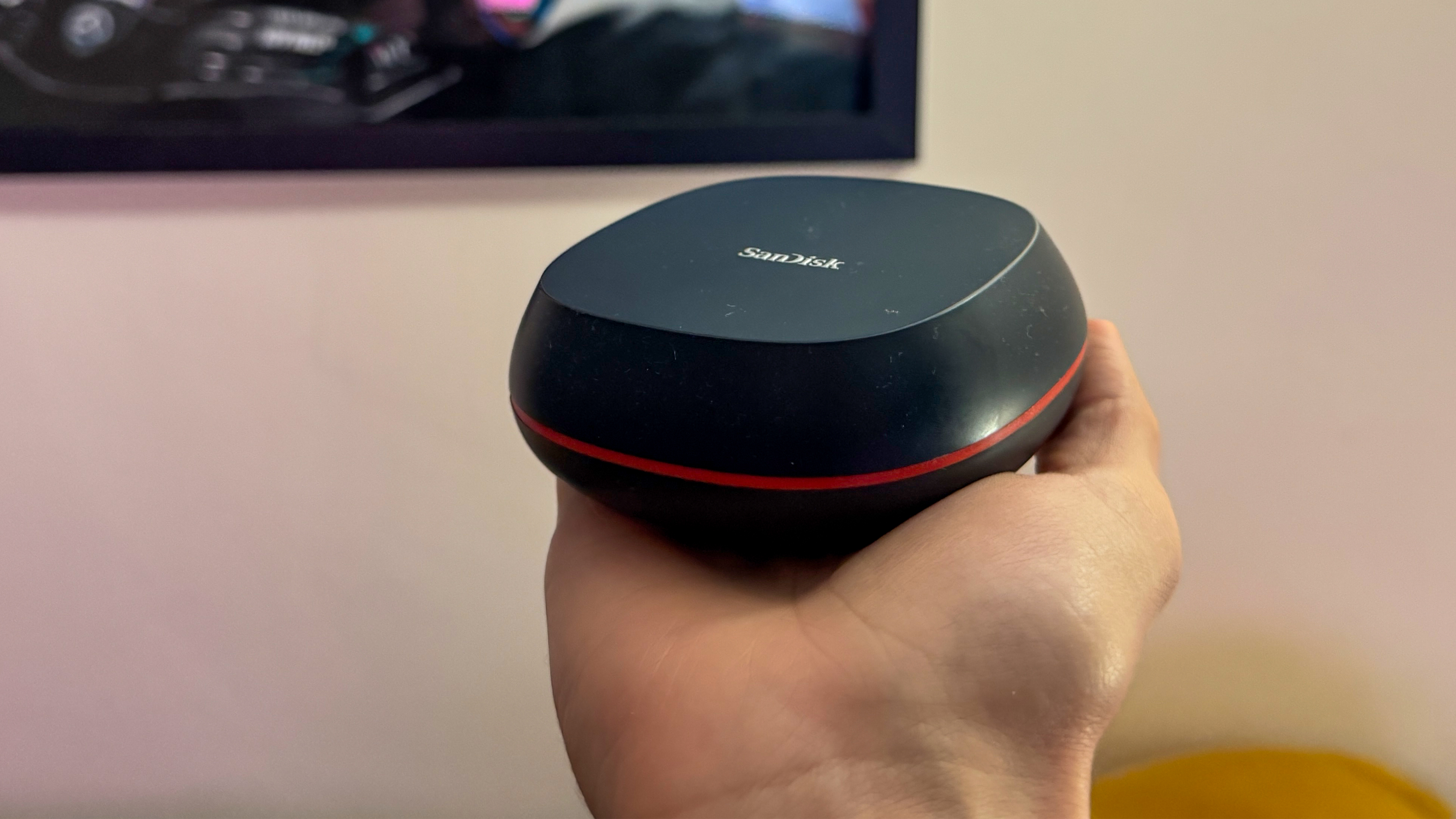

1. SanDisk Desk Drive (USB 3.2, 4/8TB)
Specifications
Reasons to buy
Reasons to avoid
This mini hockey puck packs a ton of space and frankly embarrasses any monolithic external hard disk drive that takes up space on your desk. The SanDisk Desk Drive is, simply put, a lot of storage in a small package that can be integrated into your desk setup with the greatest of ease.
It's an SSD, so you're getting far better reliability — alongside SanDisk's comprehensive software suite to get the drive to do whatever you want it to do from daily backups to just being a secure place for large files. And with that solid state standard comes some lightning quick read/write speeds.
Only real downside is the price, which is certainly a steep one with prices starting at $379 for 4TB (though it's regularly discounted to $299). Compared to your standard HDD desk drives, this is a big investment. But trust me when I say it's absolutely worth it.
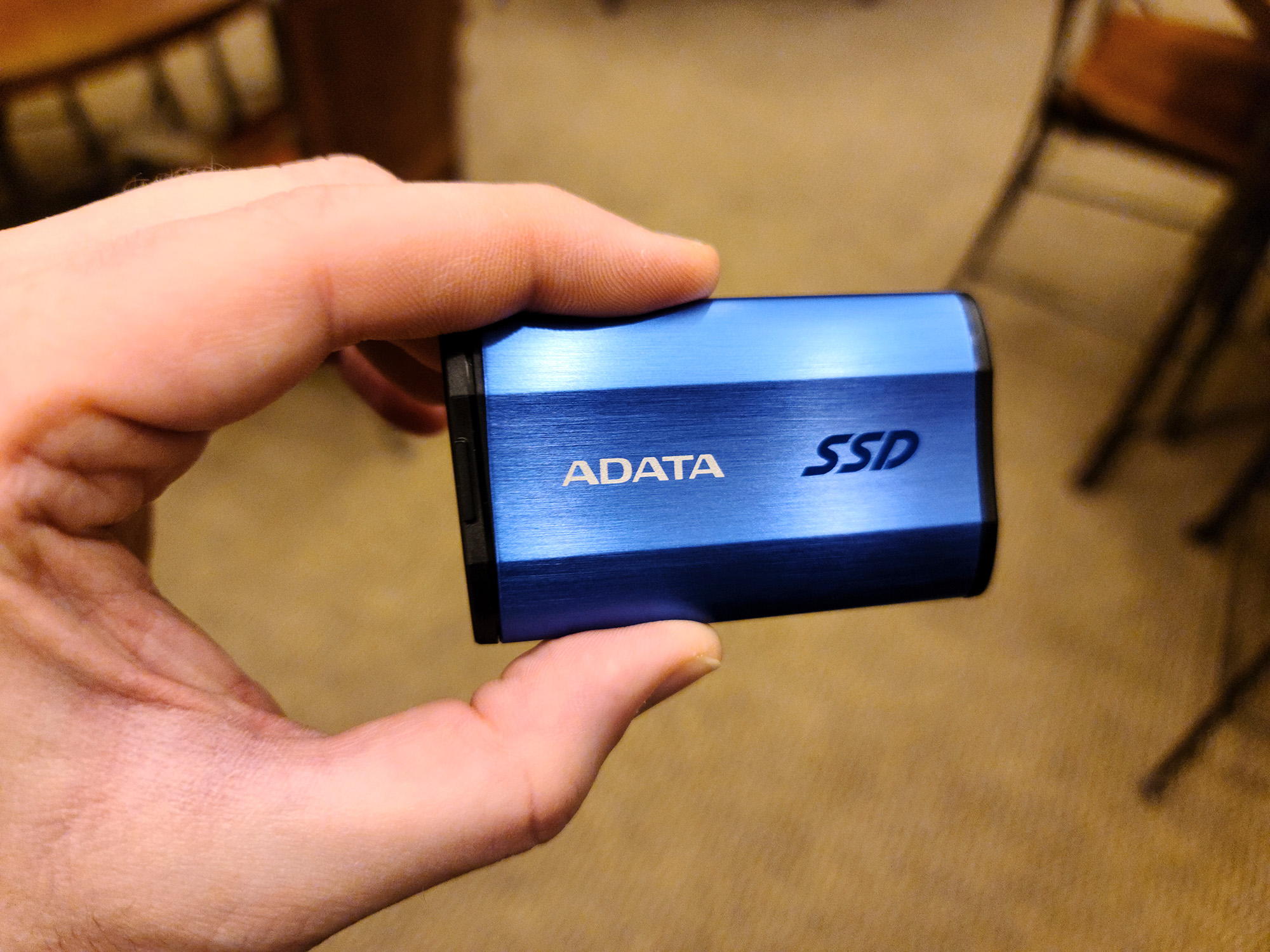
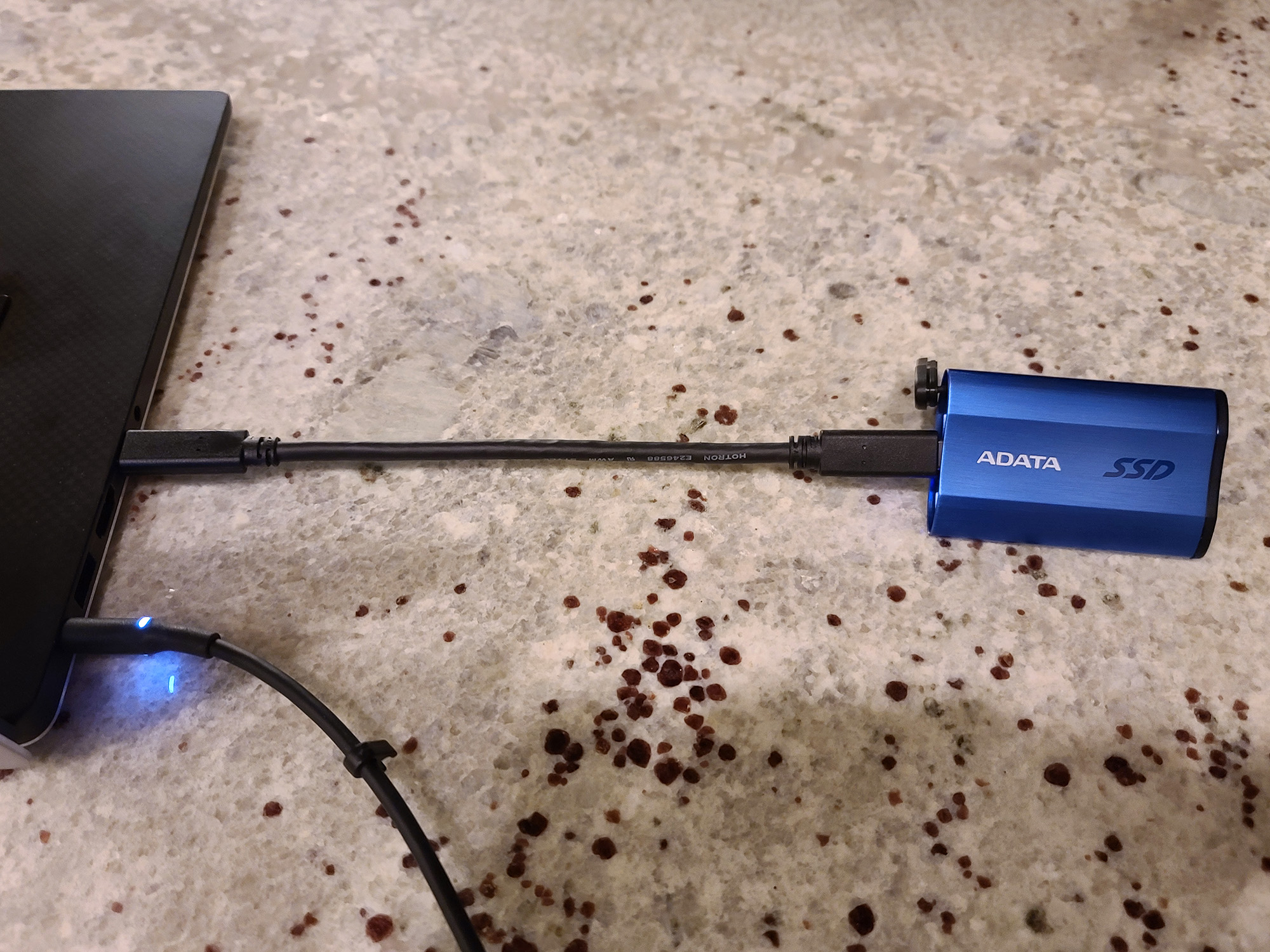
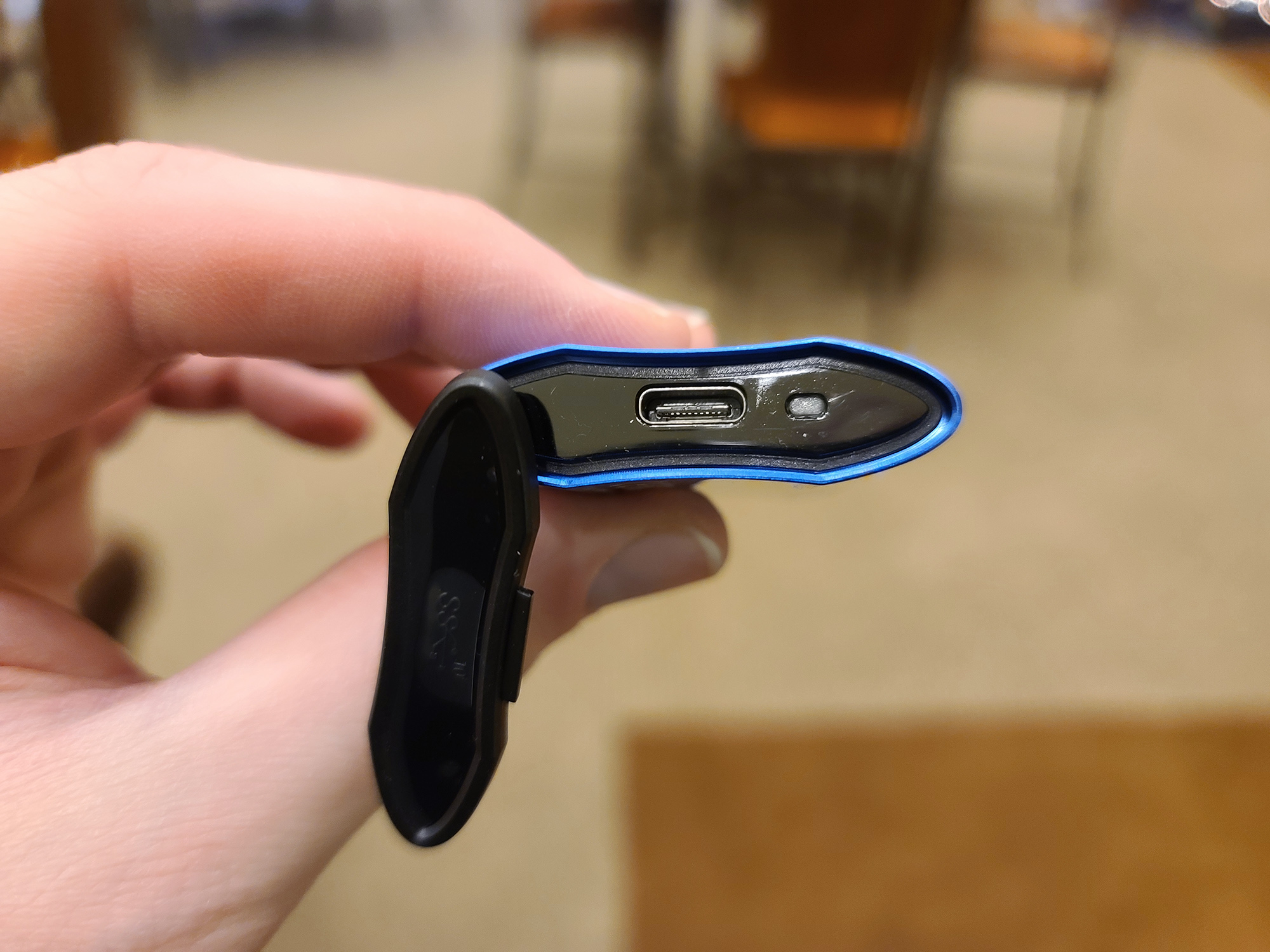
2. Adata SE800 External SSD Ultra Fast (USB 3.2, 1TB)
Specifications
Reasons to buy
Reasons to avoid
The Adata SE800 External SSD Ultra Fast measures just 2.8 x 1.7 x 0.4 inches and weighs 1.4 ounces and is rated for IP68 protection against dust and 30 minutes of submersion in 4.9 feet (1.5 meters) of water.
It meets the MIL-STD-810G 516.6 standard for impact resistance when dropped from 4 feet (1.22 meters). You can use either a USB Type-A or a Type-C cable to connect this Type-C drive to your computer.
We didn’t quite see the drive’s 1,000MBps-rated speeds in our tests, but the drive proved fast anyway. It’s also pretty affordable, with the 1TB version we tested available online for under $130, and the 512GB version findable for about $80.
Those two capacities are your only options, and there’s no pre-installed software, but the SE800 is otherwise an outstanding value that lives up to the promise of its name, whether compared with the noticeably slower Adata SC685 or many other smaller drives on the market.
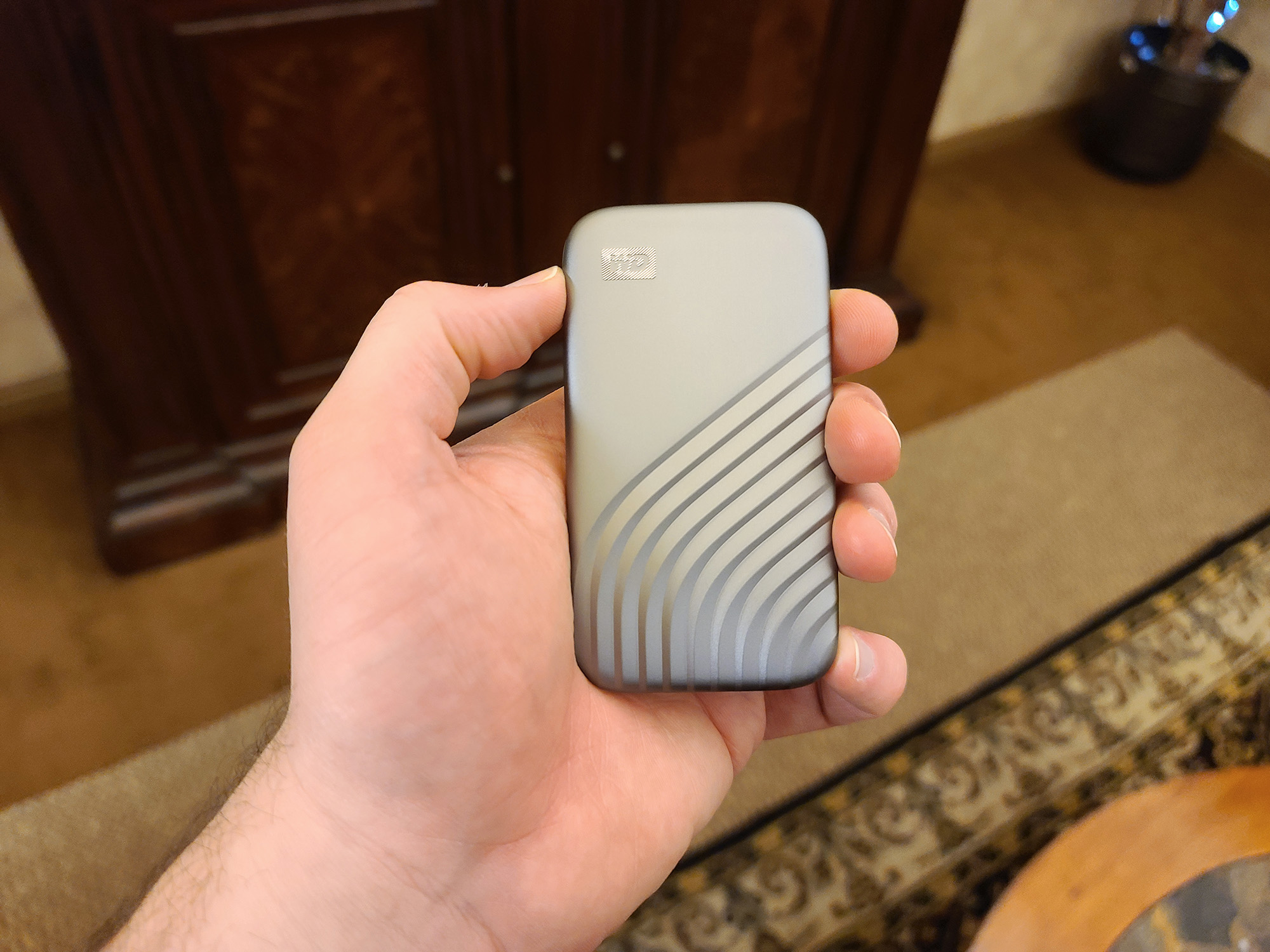
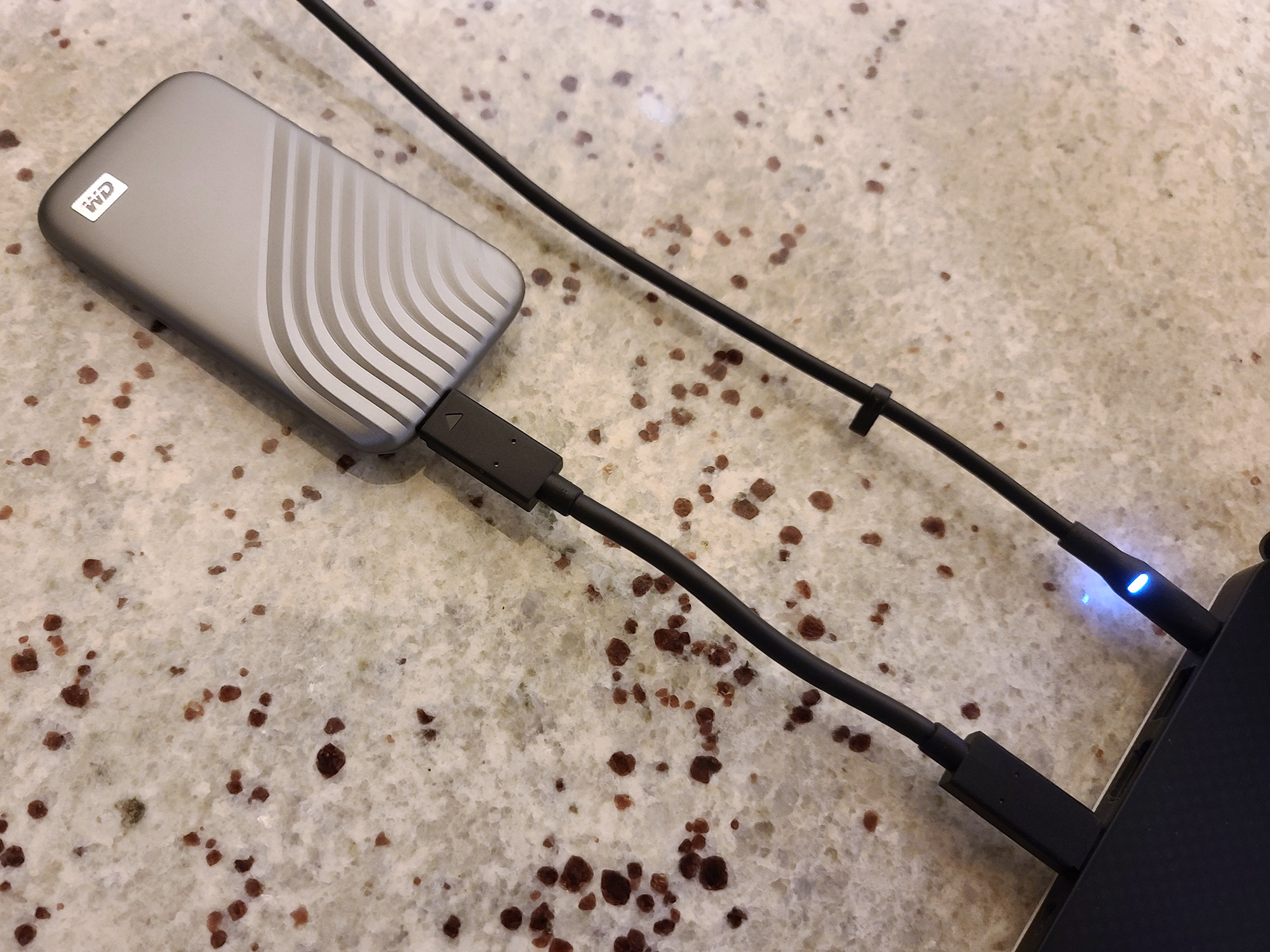
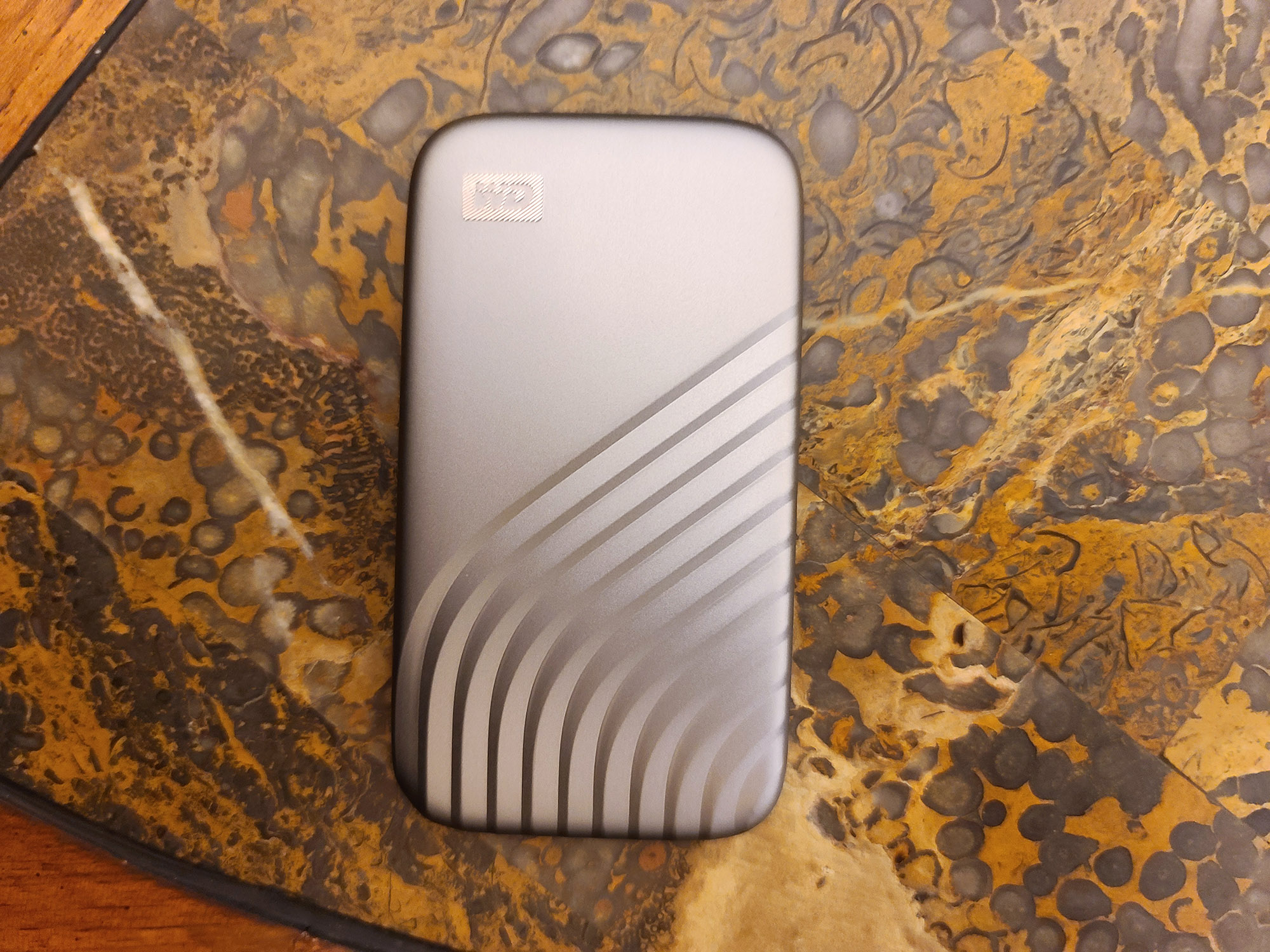
3. WD My Passport SSD (WDBAGF, USB 3.2, 1TB)
Specifications
Reasons to buy
Reasons to avoid
The WD My Passport SSD with USB 3.2 doesn’t look like its travel-enabling namesake, the My Passport Go, but it’s all ready to go places. It’s small (3.9x 2.2x 0.4 inches) and attractive, with its shiny ridged surface and choice of five snazzy colors (blue, gold, gray, red, and silver).
The My Passport SSD's software application gives you access to My Cloud Home Storage and lets you download other WD utilities. Best of all, it’s fast: The My Passport zoomed through all of our performance tests, invariably showing up somewhere in the winner’s circle for each.
With a price per gigabyte of $0.19, the 1TB model is one of the most expensive drives we tested. And its included USB Type-C cable is exceedingly short: 6.5 inches, which makes using this drive a bit of a hassle on either laptop or desktop computers. (A Type-A adapter comes in the package to ensure the drive will work with a wide variety of systems.) But these are small nitpicks that don’t detract from one of the best external hard drives around.
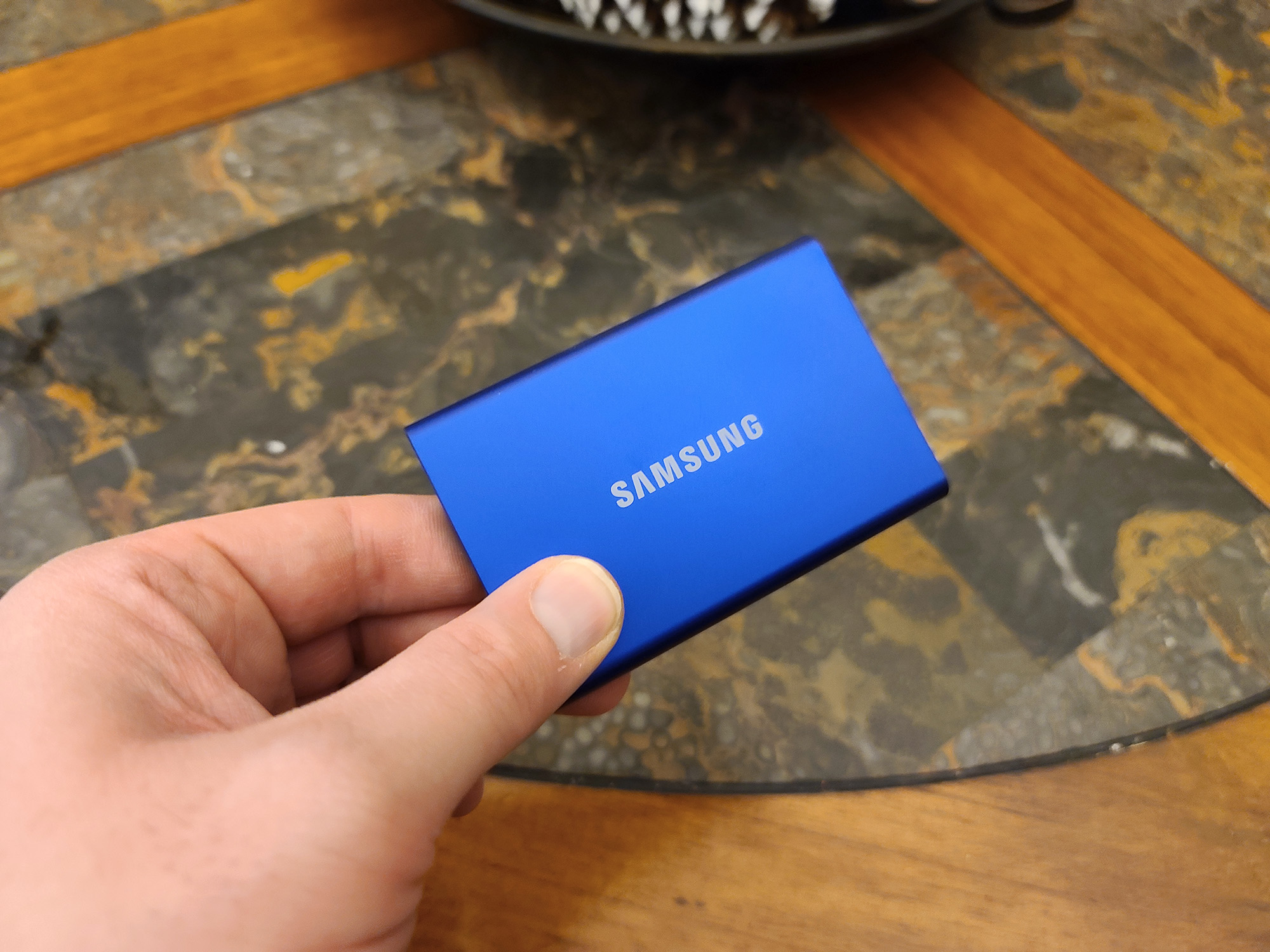
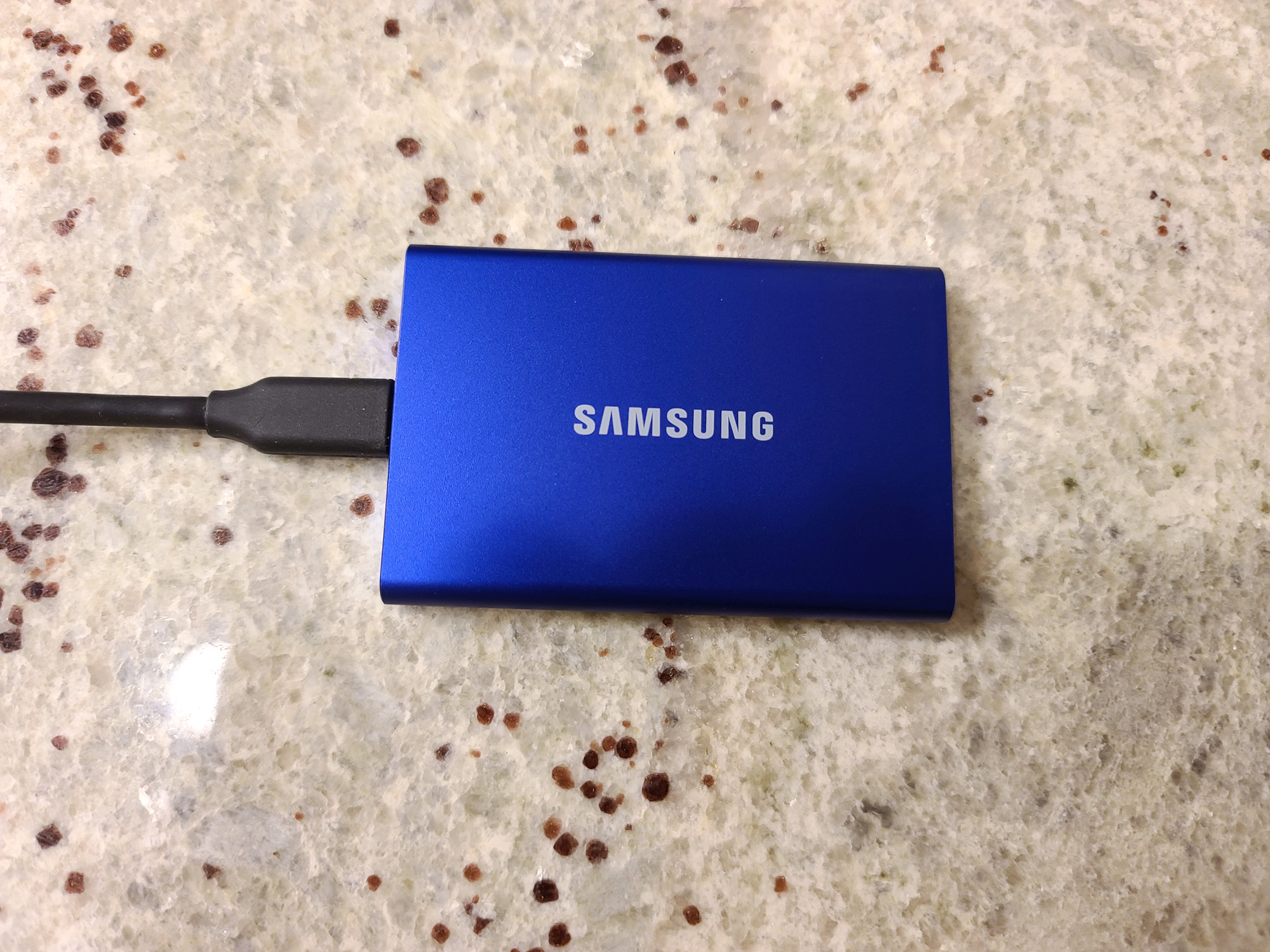
4. Samsung Portable SSD T7 (MU-PC, USB 3.2, 1TB)
Specifications
Reasons to buy
Reasons to avoid
The Samsung Portable SSD T7 looks like the T5, with its rectangular figure adorned by rounded corners, though it’s a little bigger and heavier and its software is identical. It comes in somewhat more exciting color choices, with Indigo Blue, Titan Gray, and Metallic Red variations available for its 500GB, 1TB, and 2TB capacities.
The biggest difference is that Samsung rates the drive at 1,050 MBps, and we saw much higher results in our tests. It completed our file copy test 20 seconds faster, for example.
But with a cost of $0.23 per gigabyte, this is one of the most expensive drives we’ve seen (though you may be able to find it online for cheaper). If you care more about the Samsung name, the drive’s design, and the speed than you do about value, the T7 delivers more than enough to appreciate and justify itself.
How to choose the best external hard drive for you
Do you care more about speed, capacity, or price? If it’s the first, SSDs store data in flash memory rather than on spinning platters the way traditional hard drives do and thus operate a whole lot faster. The interface can also make a difference; Thunderbolt will be a lot faster than USB, for example.
For capacity, traditional hard drives (HDDs) offer a lot more options, but SSDs are generally able to house the same amount of storage in a smaller amount of space and are a lot more reliable.
For that drop in reliability though, the price reflects that, as it’s possible to find huge hard drives (think 4TB) for $100 or less. SSDs are nowhere near that inexpensive, but smaller drives (1-2TB) can be found from just over $100 to $200 or more.
If a drive’s looks matter to you, you’ll definitely have choices. Manufacturers these days frequently market portable drives as fashion accessories, selling them in various sizes, shapes, and colors.
How we test external hard drives
The testing is pretty simple, but effective — we hook up these drives to a laptop and put them through their paces.
We do this by running the same series of synthetic and real-world tests on the drives in the same order, so every drive would function as much as the others as possible. Our test suite comprised:
- BlackMagic Disk Speed Test 3.2.1 (5GB stress loads)
- CrystalDiskMark 7.0.0 (8GB workloads, single-thread sequential read and write, queue depths of 1 and 8)
- PCMark 10 Data Drive Benchmark
- Future File Transfer Test (25GB)
Finally, we delve into the drives’ technology, features, aesthetics, cables and adapters, and other characteristics to get a broader picture of what the drives offer. Where necessary, we run other tests on the drives’ unique features to see how well they worked under real-life conditions and whether they’re likely to benefit you.
Sign up to get the BEST of Tom's Guide direct to your inbox.
Get instant access to breaking news, the hottest reviews, great deals and helpful tips.

Jason brings a decade of tech and gaming journalism experience to his role as a Managing Editor of Computing at Tom's Guide. He has previously written for Laptop Mag, Tom's Hardware, Kotaku, Stuff and BBC Science Focus. In his spare time, you'll find Jason looking for good dogs to pet or thinking about eating pizza if he isn't already.
